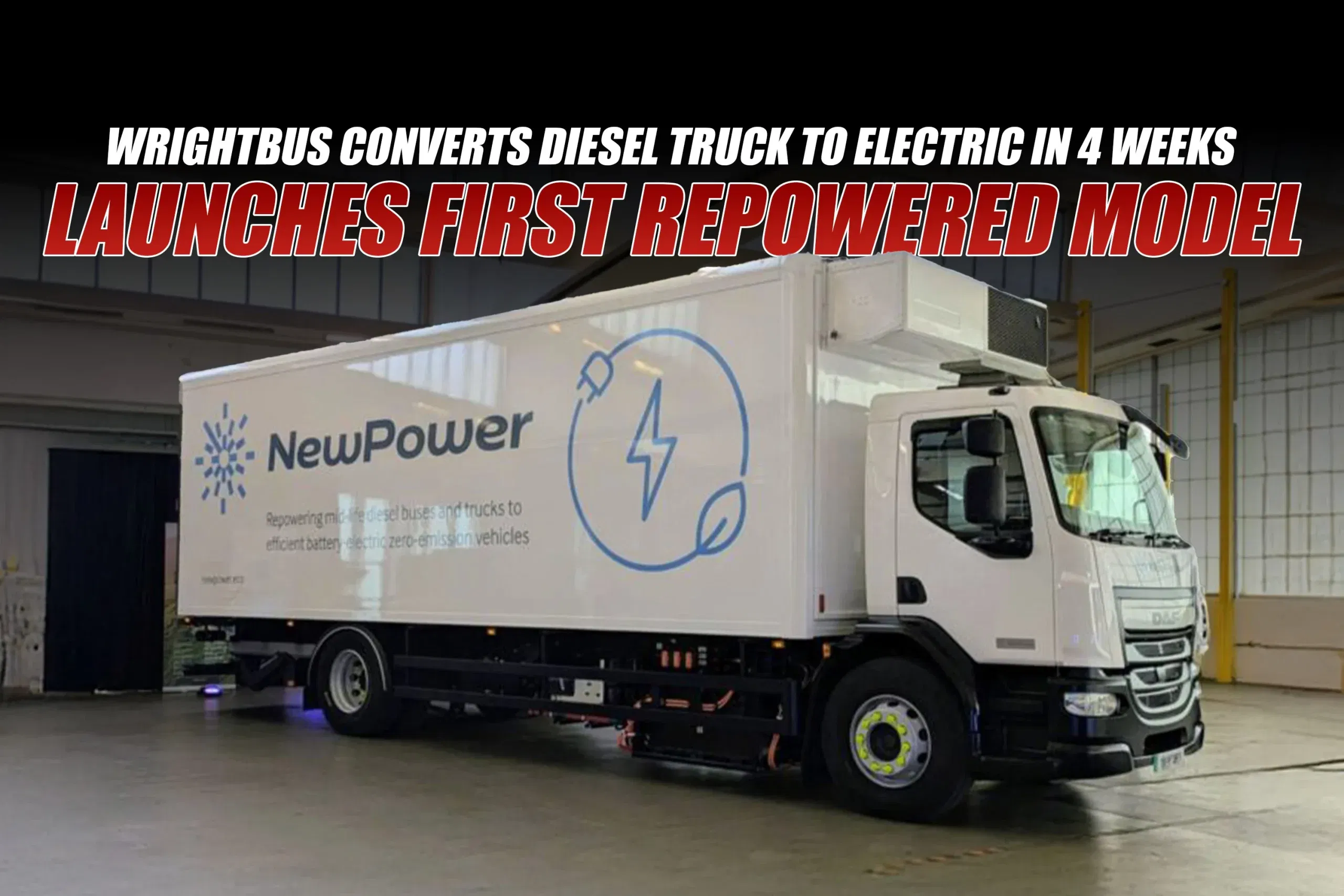Wrightbus has successfully converted its first diesel truck to electric, marking a major step in expanding its repowering business from buses to trucks. The 19-tonne twin-axle DAF truck was transformed at Wrightbus NewPower facility, highlighting the company’s commitment to accelerating electrification across commercial vehicles.
The truck was chosen because its operation closely resembles that of a bus, making it ideal for the electric conversion. According to Wrightbus press release, the vehicle “was chosen for its remarkably similar duty cycle DNA to a bus – urban deliveries with fixed routes and back-to-base.”
NewPower was launched in June last year with the goal of converting diesel buses to electric vehicles. The process provides a cost-effective alternative to buying a brand-new electric bus. Wrightbus is now applying the same approach to trucks. The company explained that “the proven Wrightbus BEV powertrain has been adapted to suit, with more than 90 percent commonality of parts.”
For buses, the diesel engine is replaced with a Voith Electric Drive System, NMC battery packs, and a Grayson HVAC system. The conversion process takes about three weeks at NewPower’s Bicester factory. For trucks, the process takes slightly longer. The converted DAF truck has been fitted with a 282 kilowatt-hour battery capable of a 290-kilometre range, and engineers expect a full conversion to take about four weeks.
“Buses have led the way in decarbonisation for the last two or three years: year-to-date sales of new buses in the UK are 75 percent zero-emission, but trucks are lagging way behind, with less than 1 per cent of the sector switching to EV,” said CEO Jean-Marc Gales. “We believe that repowering is the simplest and most cost-effective way to ignite the market and our incredible Wrightbus engineers have more experience than anyone else in replacing internal combustion engines with electric powertrains.”
With this milestone, Wrightbus is leading the charge in repowering commercial vehicles and helping bridge the gap between diesel and electric fleets, making a cleaner future more accessible for both businesses and communities.
- Stay updated with 91trucks for more articles and news.
- Subscribe to our YouTube channel.
- Follow us on Facebook, Instagram, and LinkedIn.









